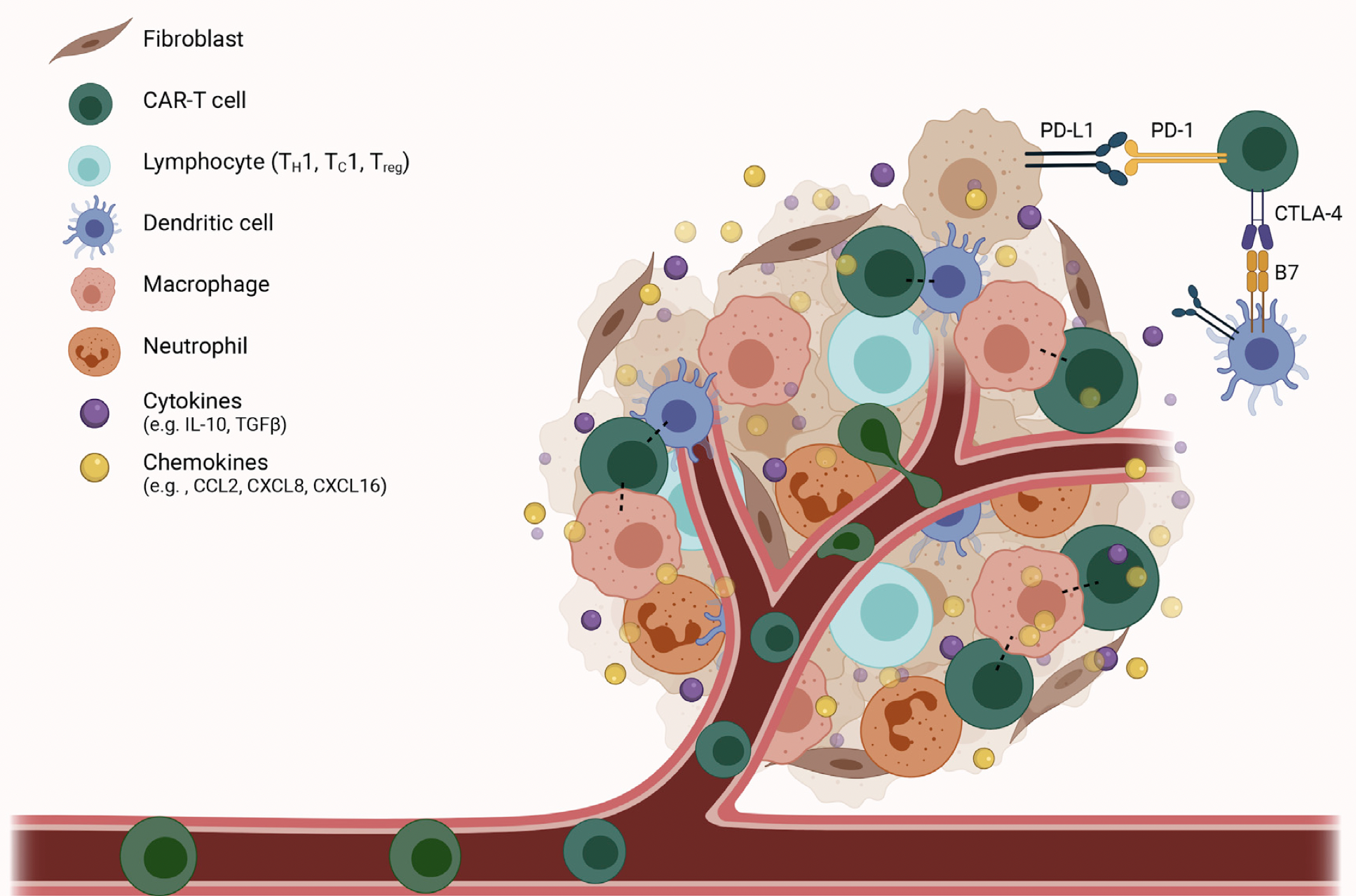The science behind CAR-T technology
Chimeric antigen receptor T cell (CAR-T) therapy is the result of decades of research. The successes we are seeing today with CAR-T therapies directed at blood cancers in particular, bring together knowledge from a vast array of scientific disciplines – molecular biology, immunology, T cell biology, oncology, materials science and more. We are only at the beginning of witnessing what this powerful new weapon can do in the fight against cancer.
How small proteins called chemokines could be the answer to getting cancer-busting CAR-T cells directly into solid tumours
Figure 1. CAR-T cells versus the solid tumor microenvironment (from Foeng et al 2022). ____________ It is now no secret that chimeric antigen receptor (CAR)-T cell therapy has produced remarkable results in treating some blood cancers. In May 2022
We can now conclude that CAR-T cells can actually cure patients
"We can now conclude that CAR-T cells can actually cure patients" – Carl June, pioneering CAR-T scientist. Excerpts from the Endpoints article: "A decade after the first-ever patients were infused with CAR-T, at least two of them remain cancer
Researcher in focus… Emma Thompson, PhD candidate and Carina researcher
Emma Thompson is a PhD candidate in Professor Claudine Bonder's Vascular Biology & Cell Trafficking Laboratory at UniSA's Centre for Cancer Biology. Emma's research is focused on testing Carina Biotech's LGR5-targeting CAR-T cells, which we aim to take into the clinic
The three women leading Carina Biotech
Dr Deborah Rathjen After completing its first (and second) commercial deals in the middle of last year, Carina is now rapidly transitioning from CAR-T discovery company to an emerging clinical stage company. Carina is led by team a trio
The science behind CAR-T therapy
"A NEW AND UNIQUE WAY TO TREAT CANCER, CAR-T THERAPY IS POISED TO TRANSFORM THE OUTLOOK FOR CHILDREN AND ADULTS WITH CERTAIN OTHERWISE INCURABLE CANCERS." Chimeric Antigen Receptor T cell (CAR-T) therapy was named by the American
A history of CAR-T technology
“THESE CHIMERIC GENES HOLD PROMISE FOR THE IMMUNOTHERAPY OF CANCER." - Dr Zelig Eshhar 1989 CAR-T therapy is a revolutionary new cancer treatment option but its development has been decades in the making ...
The structure of a CAR construct
CHIMERIC ANTIGEN RECEPTORS (CARs) ARE HUMAN-MADE MOLECULES EXPRESSED ON THE SURFACE OF T CELLS, KEY CELLS OF THE IMMUNE SYSTEM These CARs are targeted at markers on cancer cells. T cells with CARs on their surface are then directed




